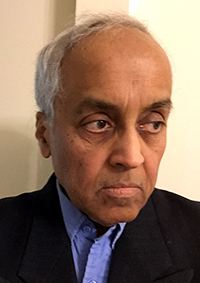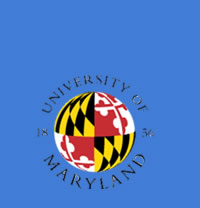 P. S. Krishnaprasad received his Ph.D. degree from Harvard University in 1977. He was on the faculty of the Systems Engineering Department at Case Western Reserve University from 1977 to 1980. He has been with the University of Maryland since August 1980, where he has held the position of Professor of Electrical Engineering since 1987, and a joint appointment with the Institute for Systems Research since 1988. He is also a member of the Applied Mathematics Faculty. P. S. Krishnaprasad received his Ph.D. degree from Harvard University in 1977. He was on the faculty of the Systems Engineering Department at Case Western Reserve University from 1977 to 1980. He has been with the University of Maryland since August 1980, where he has held the position of Professor of Electrical Engineering since 1987, and a joint appointment with the Institute for Systems Research since 1988. He is also a member of the Applied Mathematics Faculty.
Krishnaprasad has held short and long term visiting positions with Erasmus University (Rotterdam); the Department of Mathematics, University of California, Berkeley; the University of Groningen (the Netherlands); the California Institute of Technology; the Mathematical Sciences Institute at Cornell University; and the Mechanical and Aerospace Engineering Department at Princeton University. Krishnaprasad's research interests lie in the broad area of geometric control theory and its applications. His past contributions include geometry of parametrization problems in linear systems, the Lie algebraic foundations of certain nonlinear filtering problems pertaining to system identification, the Lie theory and stability of interconnected mechanical systems (e.g., spacecraft with elastic attachments, spinning rotors, and fluid-filled cavities), and symmetry principles in nonlinear control theory. |
He has also investigated mathematical problems in the kinematics and control of robot manipulators, the real-time control of flexible robot arms with end-point sensing, tactile perception, and the development of symbolic algebraic tools for design and control. In the last several years, his interests have drawn him to: problems of modeling, design, motion planning and control, arising in mobile robotics (legged and wheeled vehicles, autonomous underwater vehicles and autonomous aircraft); geometric methods in nonlinear dynamics; wavelet analysis for signals and systems; intelligent control architectures, in part inspired by biological paradigms such as central patterns generators and neural networks; the technology and theory of smart materials such as piezo-electric and magnetostrictive materials for use in actuation and sensing; problems of integration of actuators and sensors in control networks; and modeling, simulation, monitoring and control in semiconductor manufacturing processes, such as rapid thermal chemical vapor deposition.
A central interest in geometric control theory, geometric mechanics, Lie groups, and distributed parameter systems, guides the technical approaches taken to attack problems in the above areas. Additionally, some of this work is also linked to the experimental efforts in the Intelligent Servosystems Laboratory. P. S. Krishnaprasad was elected a Fellow of the IEEE in 1990 for his contributions to geometric and nonlinear control and engineering education. He was appointed a 1998-2000 Distinguished Faculty Research Fellow of the University of Maryland. He was a member of a team recognized by American Helicopter Society's Grover E. Bell Award (2002) (for work on smart structures during 1991-96) bestowed on the Alfred Gessow Rotorcraft Research Center. He was the Munich Mathematical Colloquium Lecturer (October 24, 2006). He is the recipient of the 2007 Hendrik W. Bode Lecture Prize of the IEEE Control Systems Society, for fundamental contributions to the theory of control of natural and synthetic physical systems. |


